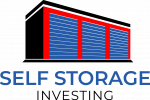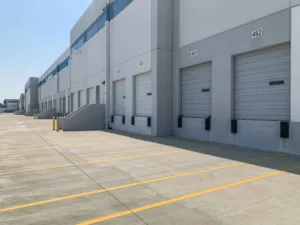So you’re thinking about investing in self-storage? Congratulations! You’re about to embark on an exciting journey with the potential for huge rewards. But before you take the plunge, there are a few things you should consider.
First: do you want to be a passive investor, or do you want to become an owner-operator? The former involves buying up units from an existing facility and renting them out; the latter involves a much more hands-on approach to management.
Whether your goal is passive income or active ownership, it pays to know what you’re getting into before you dive in—so no surprises down the road. In this article, we’ll provide some tips and tricks for transitioning from investor to operator in the world of self-storage. Let’s get started!
What Is Self-Storage Investing?
Self-storage investing is a popular choice among capital owners who are interested in investing in real estate but are not sure if they want to be hands-on with the day-to-day operations of a property. Self-storage investing involves actively finding, evaluating, purchasing, and managing self-storage facilities that are leased out to customers. This type of investment has grown in popularity as self-storage real estate investment trusts (REITs) have produced an average return of 16.54% between 1994 and 2020.
Additionally, spending on self-storage construction has increased by 926% over the past ten years, signaling strong demand for this type of investment. While REITs provide investors with passive income, it does come with high upfront costs. Self-storage investing involves putting money into self-storage facilities and leasing units—which can be a great way to generate steady income but also requires some level of involvement from the investor.
Assessing Your Goals as an Owner-Operator
Now that you have successfully made the transition from investor to owner-operator, it is important to set yourself personal and professional goals to ensure success.
Your first goal as an owner-operator should be to secure financing. Self-storage financing can be competitive, but with a strategic plan in place and a good lender, you should be able to secure the capital you need.
Once the financing is secured, setting marketing goals for your manager (which may or may not be you) is essential. Remember that a successful self-storage manager is also a salesperson, so consider setting goals to challenge them and increase occupancy and profits. A good rule of thumb is that an average occupancy rate of 90% should be achieved for success.
Hiring Staff for Your Self-Storage Property
If you want to be successful in self-storage investing, you need to have a good team in place. You’ll want to hire the best people that can help make your investment a success.
Luckily, there are plenty of jobs available nationwide with Extra Space Storage and other self-storage companies. According to Indeed.com, there are currently over 9,583 self-storage jobs available. In Florida alone, there are 42 facilities with hiring opportunities. Depending on the size of your facility and the services you offer, consider whether you need staff in the following departments:
Sales and Leasing
Having someone on board who is trained in customer service and sales are key for managing your Self Storage property profitably. They should have strong communication skills and be comfortable working with customers face-to-face or over the phone. The right candidate should also have knowledge of general leasing regulations so they can answer any questions tenants may have about their rental agreement.
Corporate Management
If you’re managing multiple locations or a larger facility, consider investing in professional careers such as Corporate, IT, Human Resources (HR), Legal, Marketing, Accounting/Finance, and Support Services departments to help manage day-to-day operations more efficiently. These roles can provide higher level leadership for your Self Storage business and will require a long-term commitment from qualified candidates.
Recruiting the right staff for your self storage business is essential if you want to see it succeed in the long run. With all the opportunities out there, it’s important to take some time researching and finding people who fit well within your organization’s culture and values—and who will do their best work for you!
Managing Operations for Maximum Profitability
When transitioning from self-storage investor to owner-operator, the most important thing to keep in mind is how best to manage operations. This means that you’ll need to find a way to balance costs with revenue, and enable efficient utilization of production systems.
Operations Management Teams
You can rely on operations management teams to help you strike this balance. For example, they are responsible for controlling variable costs and increasing throughput as much as possible. An efficient operations team helps by monitoring your production processes, setting up preventive maintenance schedules, and ensuring that each task is carried out efficiently and effectively.
Quality Control
Another benefit of having an operations management team is that they can set up quality control systems that help ensure that the products you offer are consistently meeting the quality standards you have set for them. This helps ensure customer satisfaction, creating a better impression with your clients and ultimately more profitability for your business.
Budgeting
Lastly, effective operations management includes developing accurate budgets so that you can manage expenses accordingly. Careful planning in areas such as capital expenditures and personnel can make all the difference when it comes to decreasing overall expenses and increasing profits quickly.
Exploring Tax Benefits Available to Self-Storage Investors
Self-storage investments also offer several tax benefits. Common tax benefits for self-storage investors include deductions for property tax, interest expense, and depreciation. Additionally, the cost of renting a storage unit is deductible in some cases too.
Deductions for Property Tax
Self-storage investors can benefit from deductions for property tax because it allows taxpayers to reduce their taxable income by the amount of property taxes they paid in the given year. This applies to both real estate property taxes and personal property taxes, like those paid on certain improvements such as parking lots or a heating system.
Interest Expense
Self-storage investors may also be able to deduct any interest expenses related to their business. This would include borrowing money to acquire or improve a building or purchasing items that will be used in business operations such as office furniture or equipment. The self-storage investor can deduct these interest expenses as long as they are reasonable and necessary for business operations.
Depreciation
Self-storage facilities can write off the entire purchase of relocatable storage units in the same year they were purchased if they meet IRS requirements for tangible personal property rather than being considered real estate investments. This depreciation could be an asset for many self-storage business owners as this large expense can be written off entirely in one year versus being spread out over multiple years.
Cost Segregation
Cost Segregation decreases a self-storage facility’s income taxes, allowing the owner to invest the savings in capital improvements that will increase rental revenue and profits over time. Cost Segregation allows smaller businesses to do something bigger companies have been taking advantage of — accelerating depreciation write-offs while recognizing more current income from capital investment costs throughout their
Financing Strategies for Successful Self-Storage Investing
Financial strategies and leveraging the right financing is an important parts of the journey from self-storage investor to owner-operator. Whether you are purchasing, renovating, or constructing a facility, financing can provide the necessary fund to make your dreams of successful self-storage ownership a reality.
Financing Tools and Types
Self-storage financing usually comes in the form of a commercial real estate loan. Fortunately, there is a variety of options available to self-storage investors. Popular ones include:
- SBA loans – These loans provide funding for businesses that might not qualify for traditional financing.
- Bridge loans – These are short-term loans used to “bridge” the gap between long-term financing and current financial needs; they generally offer higher interest rates but can act as an interim solution for potential long-term investments.
- Permanent Financing – This type of financing provides long-term capital structure at relatively low rates of interest, typically offering up to 15 years of amortization on terms up to 25 years (or longer).
By carefully selecting the right type of loan for your needs, you can leverage favorable terms that will give you more financial flexibility as you transition from investor to owner-operator. Plus, refinancing self storage can help provide a higher cash-on-cash return and lower interest rates— maximizing your returns in the long run.
Conclusion
Becoming a self-storage operator can be a rewarding and lucrative experience. With a solid business plan and the right strategies and management skills, you can increase your profits and become a leader in your industry. When investing in a self-storage business, you should understand the value of research and planning, as well as the importance of building relationships with local stakeholders and customers. With successful operations and clear goals in mind, you can make the transition from investor to operator with confidence.





